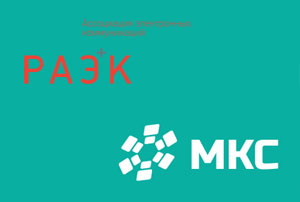In January 2016, the American company Netflix announced plans to conquer the world market of streaming TV, opening its service in 130 countries, including Russia. On 14 December 2016, Amazon answered on global expansion, making available the Prime Video service in more than 200 countries, including Russia. According to Bloomberg, in 2017, Youtube plans to launch paid video feed relaying broadcast traditional television channels on the Internet. Thus, the ambitions of the largest global players were identified.
Video streaming / streaming TV (OTT-services from the English. Over The Top) is a technology for delivery of video content over the Internet. There are two kinds of online provider of video production – online cinema (video on demand) and video channels, and a linear (continuous) broadcasting. The first suggest the content for free (ad-supported) or sell it (subscription). The second usually offer paid subscription channels, plus preview shows.
Results of Netflix for 2016, published recently, showed that despite the growing competition in the face of Youtube, Amazon, Hulu, and other players, the company is moving towards a stated objective. The audience rose to 93.8 million (+25.4% by 2015). 52.7% of customers are from the USA. Turnover grew to $8.3 bn (+35%), and profits to $1.5 billion (46.9%).
According to TMT Consulting, the Russian market leaders of online video services are following: ivi.ru – market share is 31%, Okko.tv (Yota) – 19%, Megogo.ru – 10%, “Gazprom-media” (Zoomby.ru, Now.ru, Rutube.ru) – 10%, Tvigle.ru – 9%, Videomore 7%, Tvzavr.ru – 5%.
In August of 2016 from the press (Kommersant), it became known that Media and Communications Union (which unites the largest media holdings and Telecom operators) has prepared a draft law imposing limitations on the activities of broadcasters streaming. In November 2016 in the State Duma bill No. 37671-7, and January 13, 2017 was introduced, it passed the first reading.
“Media-communication Union” founded by leading media companies, Telecom operators and pay TV: ZAO “national Media Group”, PJSC “MTS”, “CTC Media”, JSC “VimpelCom”, JSC “Company TransTeleCom”, JSC “ER-Telecom holding”, JSC “Digital channels”, JSC “Gazprom-Media holding”, JSC “MegaFon”, JSC “Rostelecom”, NAO “national satellite company”.
However, another group of players Association of electronic communications (RAEC) opposes this bill because it imposes on the services of the obligation to identify users, introduces licensing for video services, restrictions on foreign ownership for companies (20%) and a number of other anti-competitive measures. According to the newspaper Kommersant, representatives of Yandex believe that the bill is excessive, and will negatively affect competition in the market and can relate to any online service.
The Russian Association for electronic communications (RAEC) brings together more than 150 players of the market of electronic communications (such as Avito, Rambler, Google, ivi, Mail.ru, Megogo, Ozon, VK, RBC, Echo Moscow, etc.). It operates with the financial support of the Federal Agency for press and mass communications.
Meanwhile, Netflix connects the growth of the audience with the quality of the content offered. It is also the author of part of the content (for example, such international hits as “Marvel’s Luke Cage” and “The Crown”). In 2017 the company plans to invest in content creation over $6 billion (versus $5 billion in 2016).
Sources: Shareholders.com, Amazon, Bloomberg, Kommersant, Kommersant, State Duma, New York Times, Netflix, MKS, RAEC





